OCCRP's 10 pages of absurdity Critical review of unsubstantiated anti-Azerbaijani claims
Preface
As the saying goes, the adversaries of our country never sleep. However, in their constant vigilance, they increasingly forget not only the rules of the game (which we are accustomed to), but also the basic principles of logic.
Recently, a certain piece, whether it be an article or a report authored by Rasmus Canbäck, a Swedish journalist notorious for his anti-Azerbaijani slander and his role as a propaganda mouthpiece for the Armenian diaspora, was published. According to Canbäck himself, Armenian "blockade journalist" Marut Vanyan also contributed to the report. This material was produced as part of the OCCRP project (Organized Crime and Corruption Reporting Project), a global network of investigative journalists, and was published on their official website.
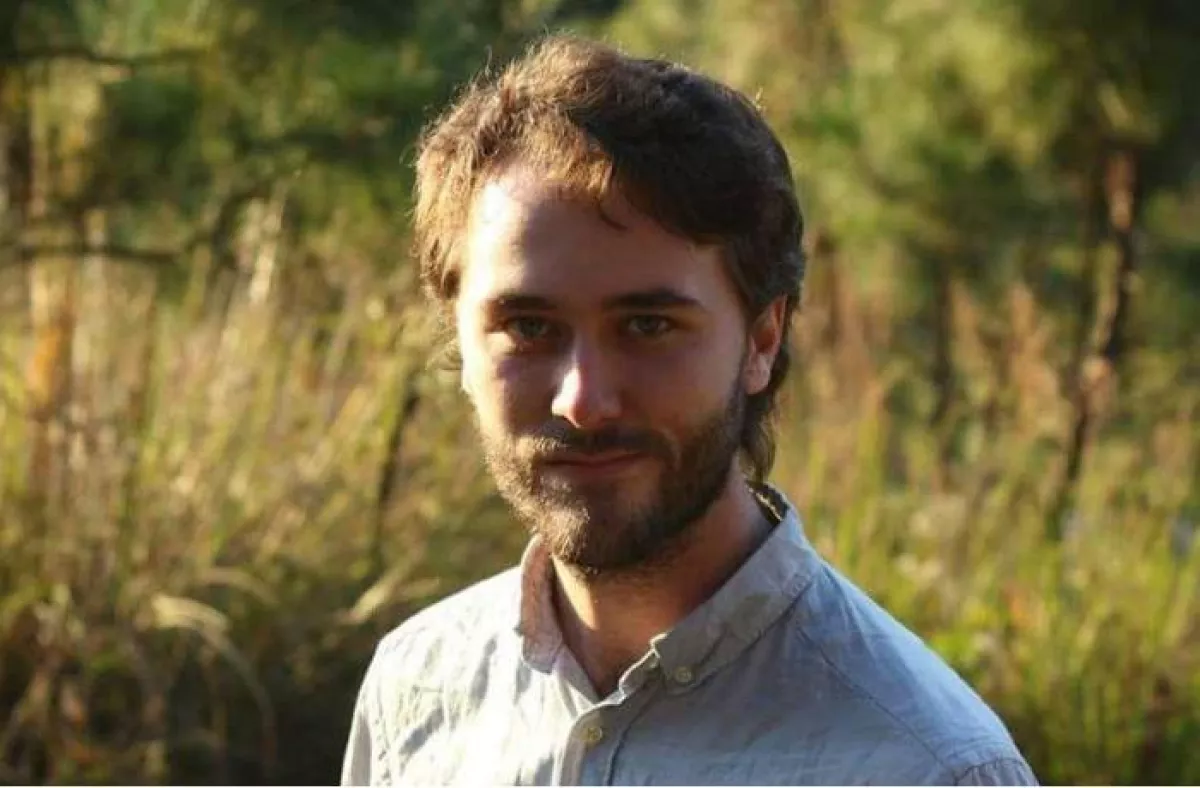
Rasmus Canbäck: Propaganda peddler for the Armenian diaspora
This document, if it can be called that, was intended by its creators to expose Azerbaijan, but upon closer examination, it exposes the authors themselves, the OCCRP, and, as it turns out, the suppliers of "information"—representatives of the International Committee of the Red Cross (ICRC). Moreover, everyone involved in the creation of this libel ultimately fell into the trap of their own design.
The main premise of the report is the claim that Azerbaijan allegedly hindered the ICRC's activities in the area of former Armenian compact settlements in the Karabakh region by all means, thereby exacerbating the supposed humanitarian crisis caused by an alleged blockade.
The material is filled with "insider" accounts from ICRC employees, including "high-ranking" ones. To be more precise, it is built upon these revelations.
Let us clarify from the outset that we do not aim to conduct a full analysis of this ten-page document. We will highlight only some of the most absurd passages, which most vividly demonstrate the authors' biased position.
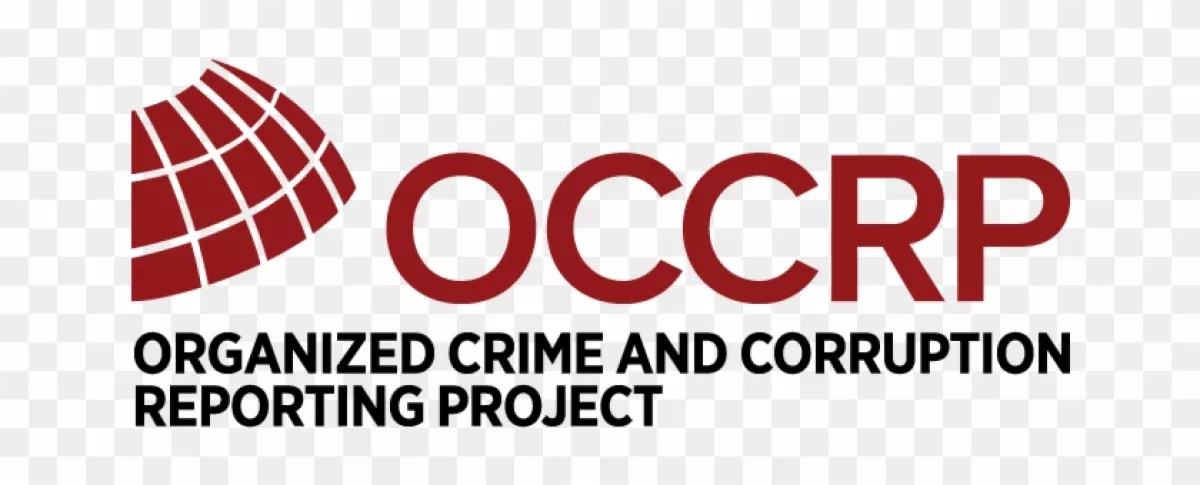
The OCCRP document is full of lies, nonsense, and barefaced aggression
A question for OCCRP
Before we dive into the text itself, we need to address a fundamental question. Why did the OCCRP even undertake this so-called "investigation" in the first place? As the name suggests, this organization focuses on issues of corruption and organized crime. To any reasonable reader, this raises a major red flag—why would an organization dedicated to fighting corruption and organized crime suddenly devote its report to a "problem" that has nothing to do with these issues?
This is the first, though by no means the weakest, argument for why this report is, at best, worthy of being ignored. We could have done just that, but we chose to examine it more closely to ensure we don't miss the chance to expose the true nature of the authors of this work and all those who supported them.
Thus, we extend our deep appreciation to the OCCRP for this document, which is generously laced with lies and barefaced aggression. It once again proves that the ICRC acted beyond its mandate, violated the principle of neutrality, and took a purely political stance.
But let's take it step by step.
Tears
The report begins, as has become the norm, with blatant manipulation—a baseless, tear-jerking passage about a certain Ani and her suffering child: " In February 2023, Ani Mangasaryan was watching her city die. She was terrified that her baby would die with it."
We won't delve into all the details, but similar stories of allegedly starving and dying children and the elderly are scattered throughout this material, clearly intended to amplify the emotional impact in the absence of any solid arguments. These arguments may seem toothless to us and to anyone familiar with the Armenian-Azerbaijani conflict. However, to the average Western reader, who tends to believe whatever their compatriots say about the East—especially when they claim to be fighting corruption—these arguments might seem convincing.
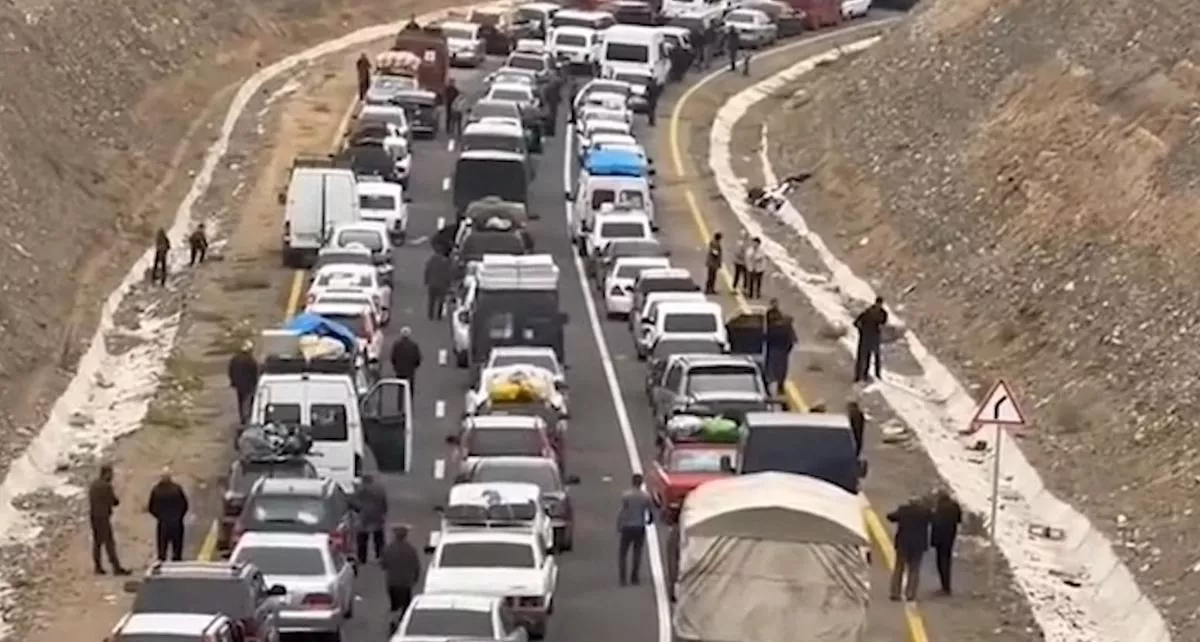
No one was harmed during the voluntary resettlement of Armenians to Armenia
Politics and history
The text goes on to make outrageous political and historical statements. For example: " The Azerbaijani government, whose claim to Nagorno-Karabakh is recognized by international law, insisted on its right to assume control of sovereign territory." Notice how cleverly everything is turned upside down? According to this, it’s not the Armenians who have claims, but us—on our own land!
The author of the report also shamelessly references the separatist so-called authorities: " According to the Nagorno-Karabakh authorities," " A former coordinator at the enclave’s Ministry of Health." We would like to remind the authors that simply citing self-proclaimed "authorities" without any disclaimer about their illegitimacy constitutes complicity in a crime against the Azerbaijani state.
But the author doesn’t stop there and clumsily attempts to reinterpret history:
"Though historically home to both Azeris and Armenians, the territory was awarded to Azerbaijan by Joseph Stalin after both countries fell under Soviet rule."
How tiring this Stalin myth is! The mere repetition of such ideas already raises doubts about the soundness of our opponent's reasoning. For instance, if you ask someone how the Karabakh conflict started, and they mention "Stalin," you can immediately understand who you're dealing with.
But jokes aside, with such statements, the authors are also playing a nasty game with the Western public, for whom the name Stalin is synonymous with all the evil in the world. In this way, the OCCRP once again hurries to make its stance in the conflict clear.
Here's another example:
"Azerbaijani troops invaded Nagorno-Karabakh on September 19, prompting nearly the entire Armenian population of the enclave to flee to Armenia along the Lachin Corridor. Dozens of people, exhausted by months of hunger, were reported to have died during the miserable 30-hour journey. The last outpost of an ancient Armenian community was no more."
After reading this passage, one can't help but think: "OCCRP, your lack of professionalism is astounding!" How can an army "invade" its own territory? Of course, we understand that your funders may have requested you to "inflict as much harm on our country as possible" (at this point, it's hard not to want to add a smiley face). But that's no reason, nor an excuse, to stoop to antics that only entertain those you intended to insult—that is, us, Azerbaijanis. Furthermore, we must point out that during the voluntary resettlement of Armenians to Armenia, no one was harmed.
ICRC and choosing a side in the conflict
The main section of the material, as noted earlier, revolves around the "hard work" of the ICRC, as told by alleged insiders from the organization. According to them and the conclusions drawn by the authors, Azerbaijan obstructed the movement of humanitarian convoys from Armenia along the Lachin road to areas where Armenians reside in Karabakh.
Let’s be clear: this is a blatant lie. The participants of the civilian protest at the Russian peacekeepers' post specifically made way to allow ICRC convoys to pass. Even after the establishment of the Lachin checkpoint, there were no issues with the transportation of humanitarian goods, the evacuation of patients, or the movement of Russian peacekeeping forces with food supplies.
The fact that Western organizations tried and continue to try to create a problem on this basis only indicates that they have adopted the Armenian political agenda. It was crucial for the Karabakh separatists, supported by Yerevan and their foreign backers, to create the myth of a blockade to generate international pressure on Azerbaijan and eventually secure a special status for Armenians in Karabakh. For the same reason, Karabakh Armenians refused to accept humanitarian aid from Baku via the Aghdam road.
It’s important to remind our readers of the stance taken by the ICRC regarding the coordination and logistics of its activities in the Karabakh region of Azerbaijan. This situation has been covered in several articles by our publication. The crux of the matter is that during the long decades of occupation, the ICRC conducted its operations in Karabakh through its office in Yerevan. Baku was not pleased with this arrangement but refrained from making it an issue, understanding that the Red Cross should operate based on the principle of maximum effectiveness for its target audience—people in need of assistance.
However, the situation changed fundamentally in November 2020, following Azerbaijan's victory in the 44-day war. Among other areas, the Aghdam region was liberated, providing a direct road to Khankendi. Additionally, a new road from Fuzuli to Shusha was quickly constructed, which also connects to Khankendi and other settlements. In short, there were now plenty of routes to ensure humanitarian missions for the Armenian population in Azerbaijan via Azerbaijani territory—plenty of options to choose from!
Yet, they decided not to choose them, despite clear signals from Baku to the ICRC.
The ICRC was expected to move its office from Yerevan to Baku and handle logistics from Azerbaijan, considering the restored territorial integrity of our country. While this detail might not be explicitly stated in the organization's Charter or the Geneva Convention, it is an unwritten rule of international legal ethics.
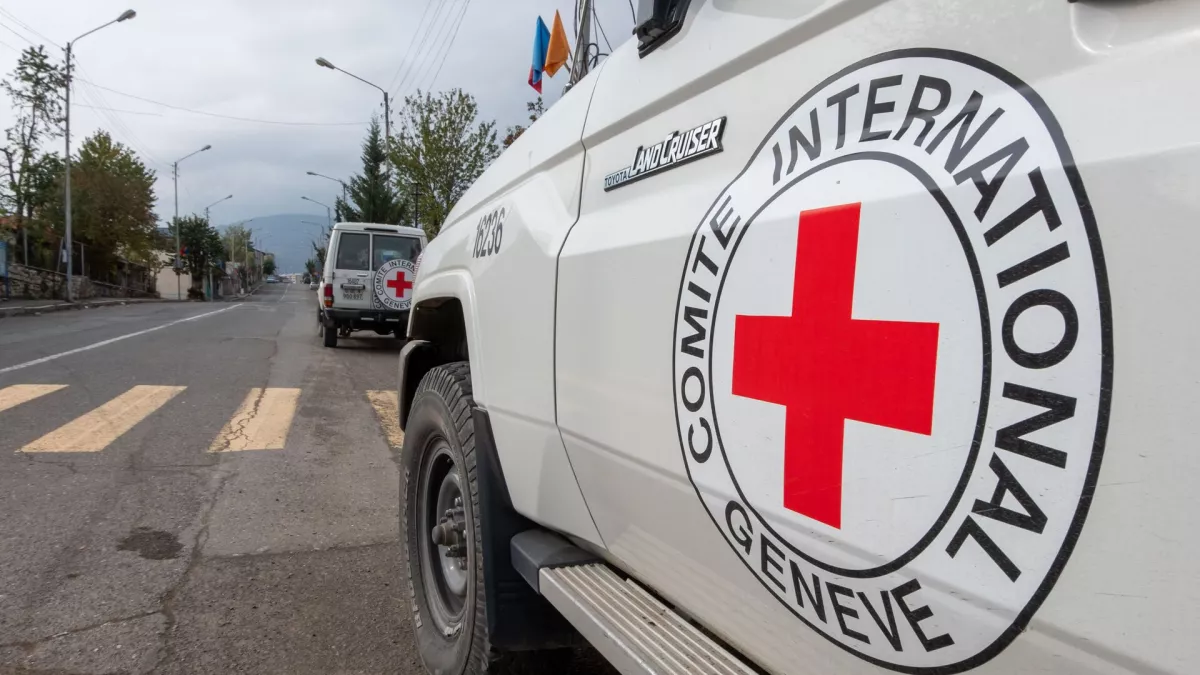
The ICRC supported the occupation of Azerbaijani territory
The fact that the ICRC ignored Baku's calls on this matter indicates its political bias. The issue is not just about ethics but also about practicality. If the ICRC genuinely cares about helping people, it should not create artificial obstacles for itself but, on the contrary, take advantage of new opportunities. Thus, the ICRC's stubbornness suggested that the organization's leadership was, de facto, supporting Armenia's occupation of Azerbaijani sovereign territory, prioritizing political expediency over humanitarian necessity. Remarkably, this is explicitly stated in the report itself.
At the same time, Baku began making new demands. Instead of using the Lachin corridor, the Azerbaijani government stated that the blocked territory should be supplied via another route connecting Nagorno-Karabakh not to Armenia, but to the Azerbaijani city of Aghdam. This proposal, frequently stated publicly, was also persistently conveyed privately to the ICRC mission, according to an ICRC staff member. However, for many in Nagorno-Karabakh, this idea was unacceptable, as it would imply recognizing the legitimacy of the Azerbaijani campaign to integrate them into Azerbaijan and severing the last connection with Armenia.
Firstly, the Azerbaijani government could not label the territory as "blocked" simply because it was not. But the issue here is the delight with which the OCCRP, with the ICRC’s consent, shares the Armenian political perspective on the issue and openly sympathizes with it, implying that even the alleged "blockade" had a political, rather than humanitarian, character for the Red Cross.
"The ICRC argued that the Lachin road, and its vital lifeline to Armenia, be kept open," continues the Swedish journalist speaking on behalf of the Red Cross (naturally, with the latter's consent).
Are there still any doubts that in the Armenian-Azerbaijani conflict, the ICRC has clearly taken one side? Are there any questions about whether, by acting this way, the organization violates its charter, the Geneva Conventions, and the principle of neutrality that define it as an "impartial humanitarian organization," a "neutral institution," and even an "exclusively neutral and independent" mediating body? And, as a result, seriously undermines trust in itself?
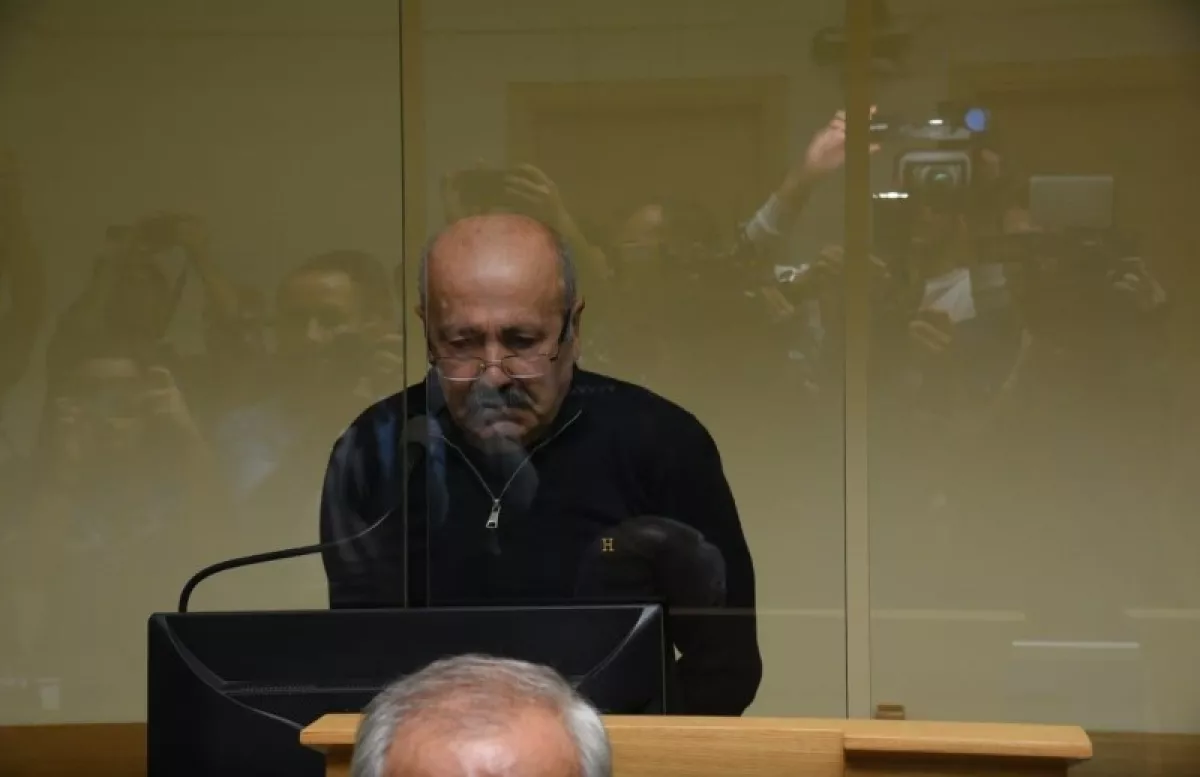
War criminal Vagif Khachatryan detained at the Lachin checkpoint
If there are still doubts, read the following paragraph, which reveals the ICRC's stance:
"Just days after the ICRC statement, a 68-year-old patient on a medical convoy was arrested by Azerbaijani officials for allegedly committing war crimes during the 1990s war. The incident prompted the ICRC to repeat its plea for ‘all concerned decision-makers to respect its strictly humanitarian mission.’”
How can respecting a humanitarian mission obstruct justice for individuals suspected of committing war crimes? It’s akin to defending Eichmann in the face of Israeli justice. Do you understand what you’re saying? Or is this just another confirmation of your support for Armenia's aggression against Azerbaijan?
Smugglers on the main road
However, insiders also confess to other transgressions. "The organization resorted to bringing in fuel ‘discreetly,’ without the Azerbaijanis’ permission." "As the situation deteriorated, the ICRC hired commercial trucks to try to bring in additional supplies. But some of the drivers were caught smuggling cigarettes and other goods to be sold for their own personal profit, prompting Azerbaijan to crack down”. “Every day they [were] accusing the ICRC that we are smugglers.” These quotes are from Red Cross staff.
Thus, the organization's employees admit to smuggling goods into the territory of the Republic of Azerbaijan. Perhaps, by confessing to minor offenses, the ICRC is trying to "clear its name" of more serious allegations?
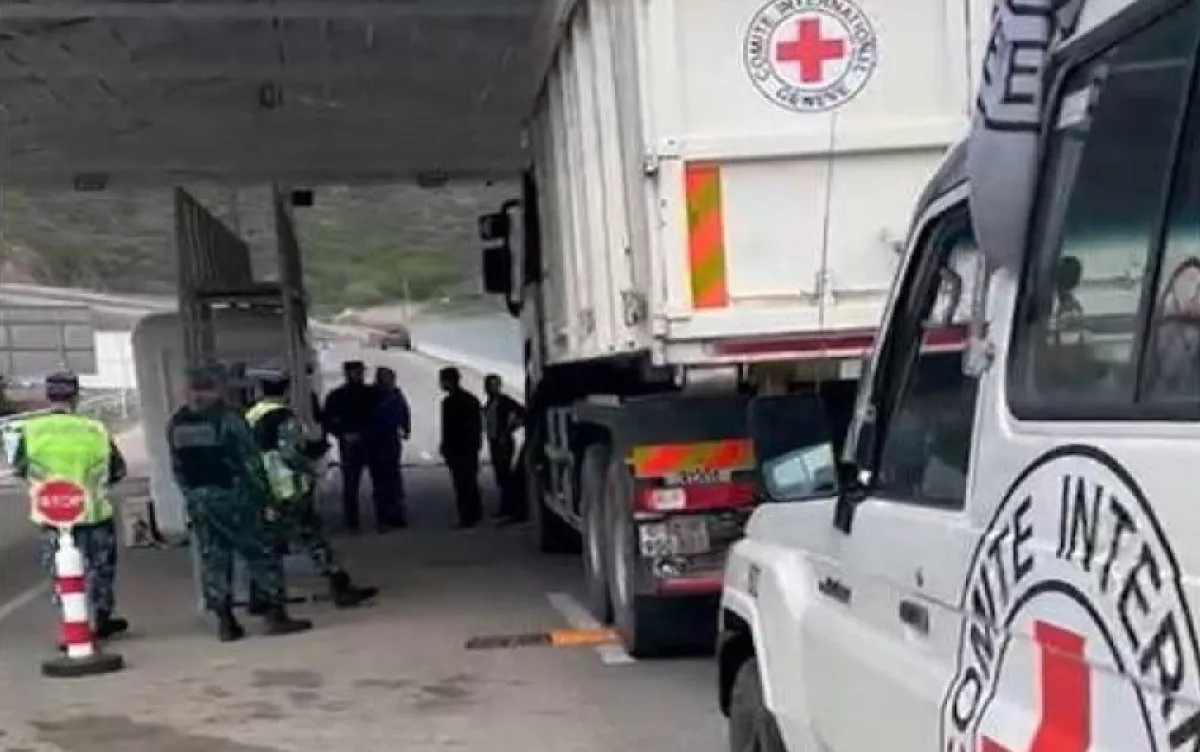
ICRC Caught in Smuggling
Questions for the ICRC
In light of everything that has transpired, another question arises for the ICRC: Will you address these OCCRP interviews? Who provided them? Were they sanctioned by the leadership? Will there be a public rebuttal from the ICRC?
If the ICRC has grievances against Azerbaijan, why not formally present them and receive a response, rather than leaking dubious inside information from a questionable organization?
A bit of jurisprudence
In their search for strong arguments to support their report, the authors believe they have a powerful trump card—a legal expert's opinion. " Melanie O'Brien, an expert in international humanitarian law and an associate professor at the University of Western Australia’s School of Law, reviewed reporters’ findings,” they write. “She said that, as a signatory of the Geneva Conventions, Azerbaijan was obligated to allow the ICRC to do its work unhindered.”
I think it would be better if the Australian expert focused on topics that are geographically closer to her. However, her comments reveal not only a lack of understanding of the on-the-ground situation but also a general misunderstanding of legal analysis principles.
Firstly, a lawyer cannot base their expert opinion solely on journalists' conclusions. Journalists are not an expert commission whose findings are finalized and binding. Journalists are not the final arbiters of truth; their reports become significant only when supported by tangible evidence, which none of them has been able to provide. Therefore, the first rule for a self-respecting lawyer is to question journalists' conclusions, not to endorse them.
Secondly, Ms. O’Brien conveniently ignores the fact that Azerbaijan did not obstruct the ICRC’s work but rather offered to facilitate it. Thus, a competent lawyer would conclude that it was the ICRC that violated its charter and the Geneva Conventions. If one party to an agreement stops fulfilling its obligations, it frees the other party from fulfilling theirs. Consequently, Azerbaijan had the right to prohibit the ICRC’s activities in our country altogether.
But it did not. That’s a prime example of goodwill!
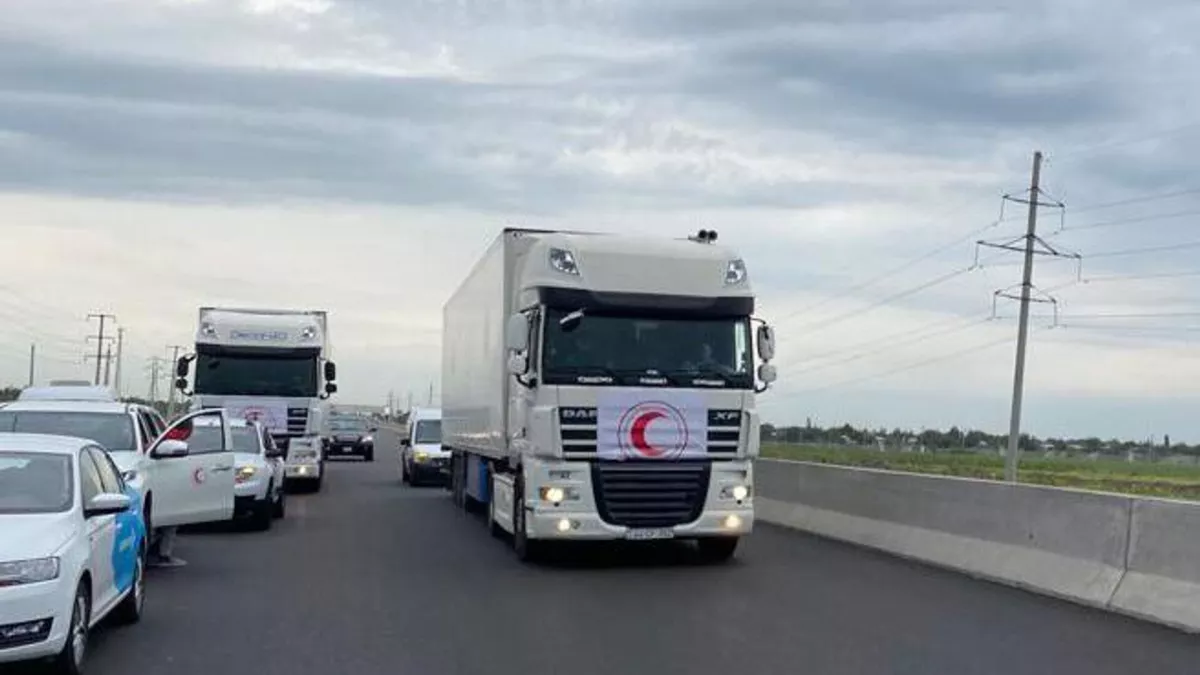
OCCRP Attacks the Azerbaijani Red Crescent Society
Attack on the Crescent
Finally, it's worth noting that a section of the report targets the activities of the Azerbaijani Red Crescent Society, alleging that it obstructed the ICRC’s work in the region.
"Though mandated to honor the official Red Cross principles, including neutrality, impartiality, and unity, Azerbaijan Red Crescent officials repeatedly embraced Azerbaijani government narratives, publicly questioned the suffering of Nagorno-Karabakh’s Armenians, and challenged the authority of the ICRC mission."
So, if the Red Crescent had endorsed your false claims about the "suffering" of Armenians, would that have been considered proof of its neutrality?
Without delving into specifics, after the ICRC has tainted itself by choosing a side in the conflict, accusations of charter violations by third parties seem absurd and unconvincing.
Conclusion
In conclusion, it can be stated that the OCCRP report is not just flawed; it is riddled with mistakes in virtually every paragraph.
Firstly, they presented the global community with false, unsubstantiated information about our country.
Secondly, OCCRP showed disrespect for the territorial integrity and sovereignty of an independent state by openly supporting a former aggressor that violated international law and committed crimes against humanity.
Thirdly, they exceeded their authority by delving into an investigation in a field unrelated to their legitimate activities.
Fourthly, they demonstrated a complete ignorance of history, unfounded judgments, absurd fantasies, illogical conclusions, and hysterical outbursts—all errors that reputable journalists strive to avoid.
Moreover, by addressing issues outside their area of expertise, this organization, albeit unintentionally, has also exposed the ICRC, which, in its dealings with Azerbaijan, resorted to dubious insider leaks.
If Azerbaijan had indeed violated its obligations under the Geneva Conventions, the ICRC would have had numerous lawful and ethically sound ways to address the situation. The fact that the organization chose to use insider leaks only underscores its lack of confidence in defending its position within the legal framework. After all, Azerbaijan has not only strong military leaders and soldiers but also highly skilled lawyers.








